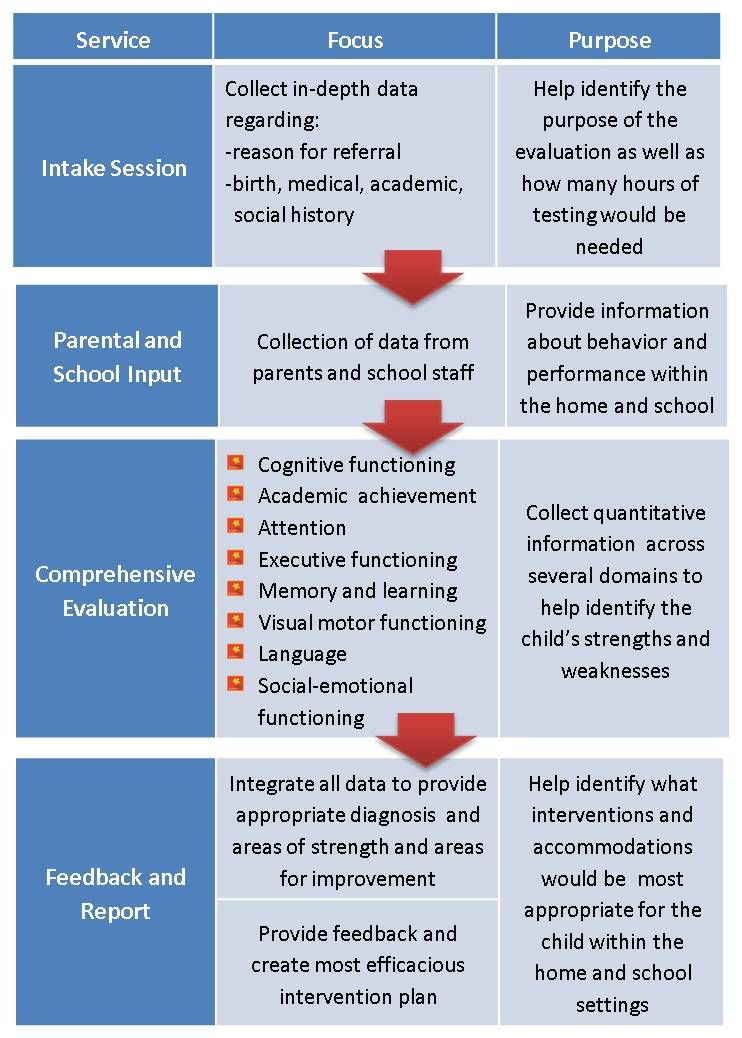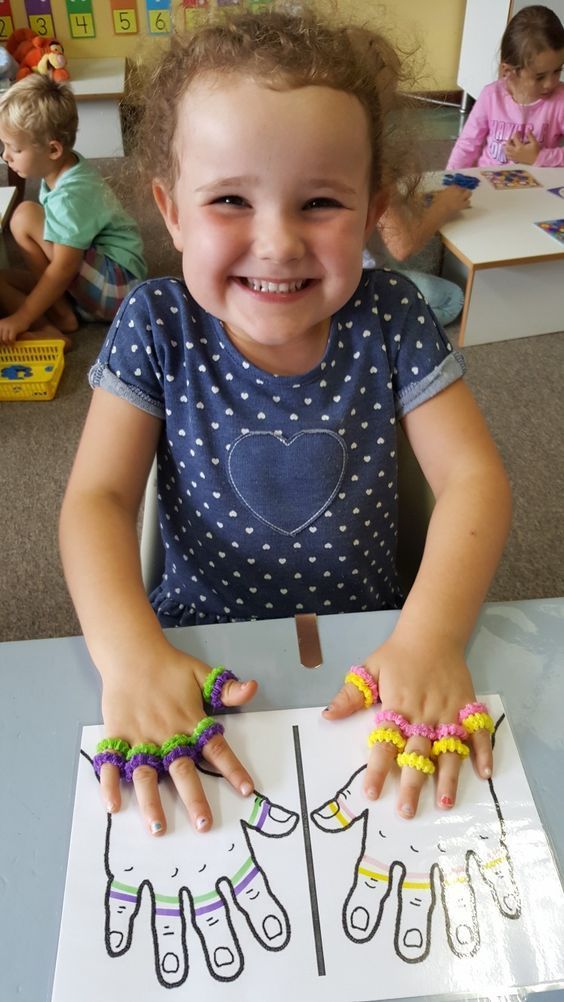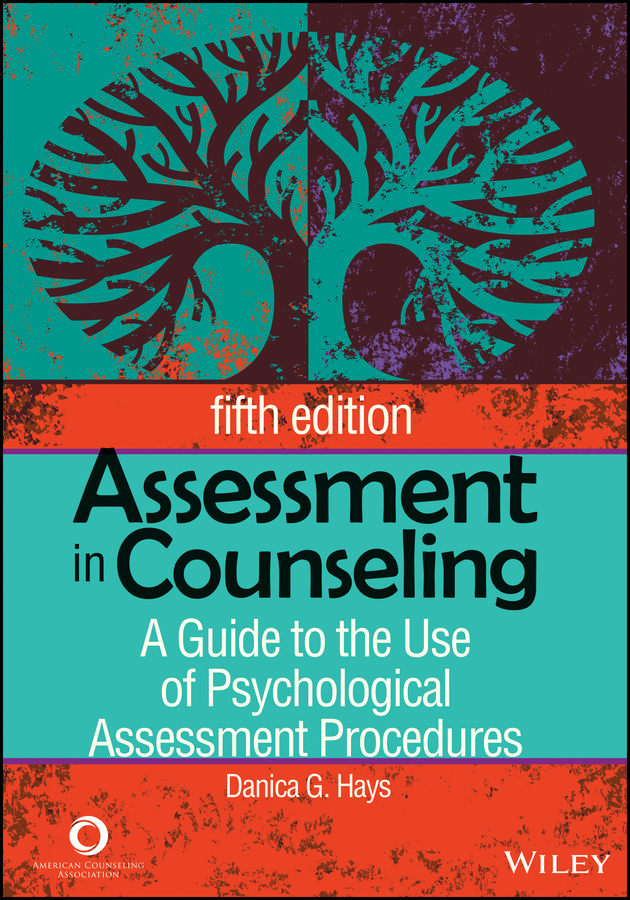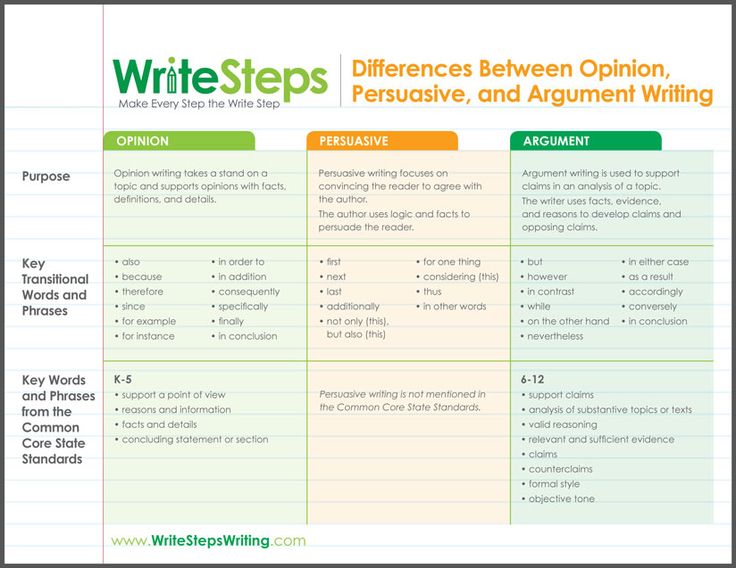Abandonment by mother
Unloved Daughters and the Pain of Maternal Abandonment
The "mother myths"—that all women are nurturing, that mothering is instinctual, that maternal love is always unconditional—stand guard in front of the cultural cupboard where taboos and secrets are kept. Over the course of the years of writing about these taboos—more than a decade—I’ve come to see that the secrets are more like those Russian nesting dolls than not. It’s a fitting metaphor because the largest outside doll is the external view of the mother and the Russian name for these dolls, matryoshka, is derived from the Latin for mother or mater. Inside this mother are other dolls, each other smaller than the first, each holding a secret inside until you get to the very last, tiny one.
Maternal abandonment is one of the taboos hidden within that outer doll; the forms it takes are all damaging and become more destructive as the abandonment takes more literal forms. Maternal abandonment evokes a flood of emotions, some contradictory; mixed in with pain and longing, there is often rage and anger, along with guilt and shame.
The Forms Maternal Abandonment Takes
1. Emotional abandonment or neglect. We’ll begin with the most common, which is emotional abandonment; it’s literal in one sense and not in the other because the mother is physically present but is a distant sun which her needy and emotionally starving daughter circles. Being raised by an emotionally neglectful mother or one who simply ignores you provides no foundation for self-esteem and is fertile ground for internalizing the idea that her abandonment of you is somehow “justified” and “your fault.” These daughters tend to grow up to be women with an insecure style of attachment and exhibit either anxiety or fearfulness about close relationships. Some will become emotionally detached themselves which they carry forward into their adult lives.
2. Maternal death. Daughters whose mothers have died during their childhood, adolescence, or young adulthood often speak of being abandoned, even though their mothers didn’t choose to leave them; as Hope Edelman makes clear in her classic book, Motherless Daughters, the death of the mother signals the end of the family as it was and the life the daughter had when her mother was alive.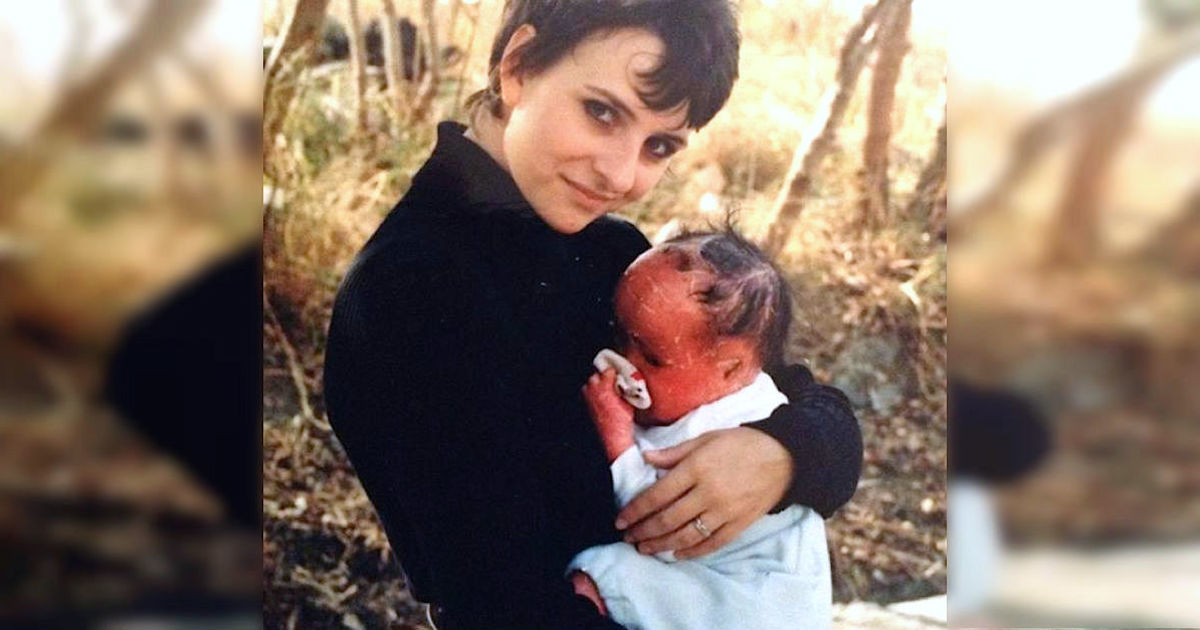
Suzy’s mother died when she was nine and, for years, her strongest emotion wasn’t grief but intense anger at her mother for leaving her in the care of her father. Her father went on to remarry within two years and her stepmother was controlling and intent on proving that she was a better mother than the one she replaced.
As Suzy told me, “What I wanted didn’t matter; she was insistent that she was the authority. I couldn’t get angry with her while I still lived under my father’s roof because he saw my stepmother as his savior and second chance. He also pretty much abdicated his role as a parent to her. So I simmered with rage at a ghost, my dead mother, for years until, finally, I got into therapy. It saved my life.”
3. Being placed for adoption. While this form of maternal abandonment is often born out of good intention or legitimate need, it can also feel like an abandonment and rejection, especially if the adoptive mother is unloving, withholding, or neglectful.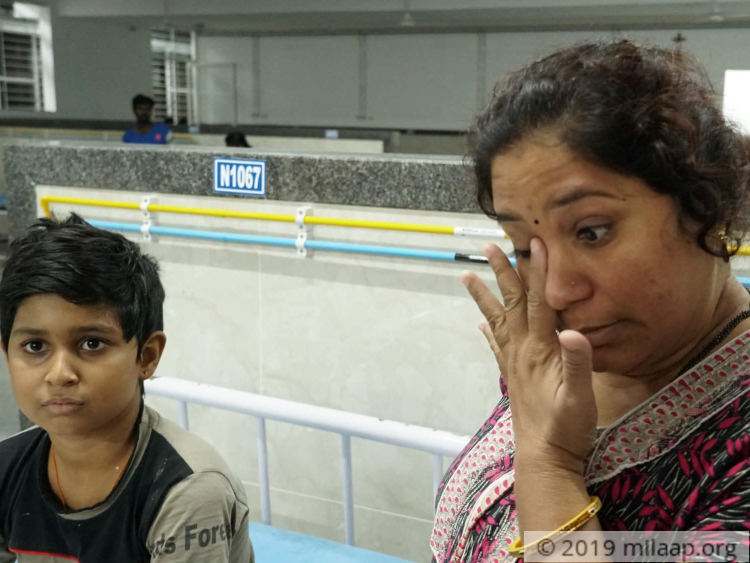 I will deal with the emotional reckoning of adopted daughters in a separate article because it is a remarkably complex issue.
I will deal with the emotional reckoning of adopted daughters in a separate article because it is a remarkably complex issue.
4. Literal abandonment. And, then, there is the very real and very big deal: When a mother walks out of her child’s life under her own steam. I have to admit up front that I have very visceral responses to these women who wake up one morning and decide this is not what they wanted and leave their kid or kids behind. Personally, I have known three women who did this—all three are now back in some kind of contact with their adult children—and I have zero empathy for them. It’s interesting too that with all the thousands of words I have written about mothers, this is the first time I have tackled it. Sometimes, there’s a matryoshka you want to avoid and this may be mine.
It’s not clear how many women walk out on their children. Alas, reliable statistics depend on the questions asked, and this tends not to be one of them; surveys look for facts. In the United States, we know that while in 1968, 85 percent of children lived with two parents regardless of marital status, by 2020 only 70 percent did. In 1968, only 11 percent of kids lived only with their mother but, by 2020, 21 percent did.
In the United States, we know that while in 1968, 85 percent of children lived with two parents regardless of marital status, by 2020 only 70 percent did. In 1968, only 11 percent of kids lived only with their mother but, by 2020, 21 percent did.
The number of children who live only with their fathers remains small but it has quadrupled in fifty years, going from 1 percent to 4.5 percent. But we don’t know why these fathers have their children; the mothers may have lost custody, died, or walked. The number of children who lived with no parent rose 1 percent over fifty years, from 3 percent to 4. But more than half of those (55 percent) who lived with no parent did live with a grandparent.
What these statistics do tell us is that mothers are under more pressure than ever and that a dialogue about mothering—and its failures and successes—should be top of mind.
What Happens When a Mother Just Leaves
Judging from the questionnaires readers filled out, everything awful happens. Terror. Weeping. Intense pain. Shame. Guilt. Reading the answers, it was as though I had been invited into a dark room where a child was left to drown in emotions, most often without help.
Terror. Weeping. Intense pain. Shame. Guilt. Reading the answers, it was as though I had been invited into a dark room where a child was left to drown in emotions, most often without help.
The shame that envelopes the family as a whole echoes through the answers. The father left with three kids who soldiered forth and refused to talk about it; this appears to be a coping mechanism adopted by many fathers and is echoed in Melissa Cistero’s memoir, Pieces of My Mother. The father who cleaned house and disappeared the mother even more by tossing every photo of her. The paternal grandmother who said, when the children said they missed their mother, “You can’t miss what you never had.” For a child, a mother’s leaving is life-altering.
Gillian, now 40, was eight and her brother was five when her mother left:
“She packed bags and drove away when I was at school and left Dad to figure out what to tell us. He mumbled something about her needing to find her way and that was that; he refused to talk about it.
I asked if she was coming back and he said he didn’t know. I asked him if she’d left because of me and he said no but then he said something like motherhood wasn’t what she expected. I don’t think he really understood how I heard that and, for years, I racked my brains for what I might have done to make her go. I felt horrible about myself.”
Her mother called her some weeks after she left, saying that Gillian was big and strong and that she “shouldn’t take it too hard.” Her mother said she was moving to Louisiana and would be filing for divorce. Mind you, she was telling this to an eight-year-old girl.
Her mother sent postcards and called from time to time, filling Gillian in on details in her life: she got a great job, made friends, she met a man who she’d be marrying once the divorce was final. She was leaving Louisiana and moving to Vermont. She sent birthday and Christmas presents but it would be three years until she saw her children again; Gillian was eleven when her mother and the stepfather she‘d never met before came to pick her and her brother up for a visit.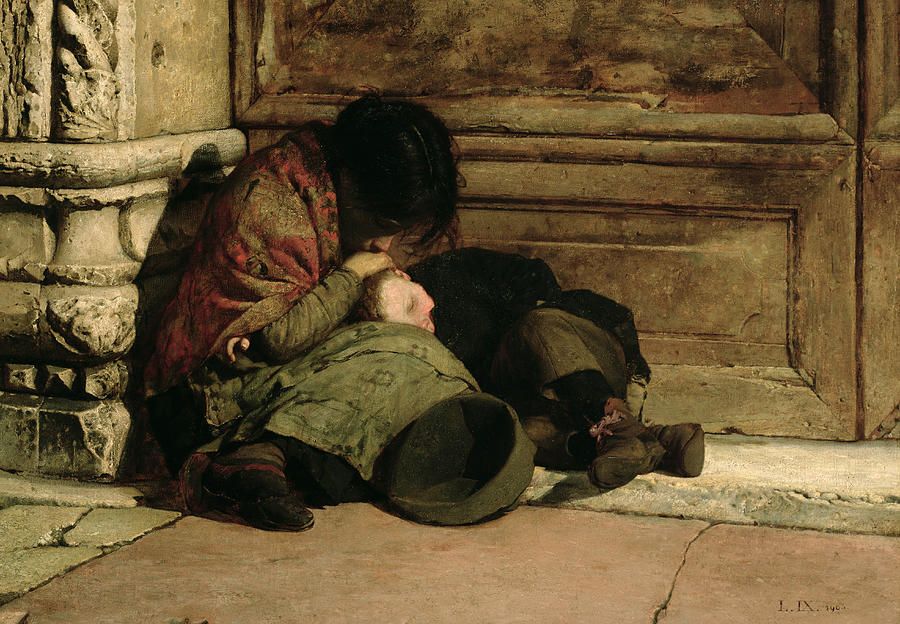 Gillian’s memory is pertinent:
Gillian’s memory is pertinent:
“The really mind-boggling thing—and it’s still true today—is that she felt absolutely justified in leaving us. When I questioned her about it, she’d tell me it was no big deal and that I would understand when I was an adult that she had to answer her own needs. Besides, she always said I was in good hands with my Dad and that both of us turned out fine. Since I’ve been in therapy on and off for more than twenty years, that is debatable. My brother has all sorts of issues, including anger management, and is not exactly a happy camper. Now that I am a mother, what she did is no less unfathomable and reprehensible now than it was then. I have strict boundaries and a limited relationship with her because I don’t want my kids getting close to her. She’s just not a trustworthy person. And, believe it or not, she bemoans the fact I am so distant.”
The Effects Are Profound and Often Unaddressed
Anecdotally, at least, the adult now in charge of the child does what he or she can to normalize the experience which, alas, has the effect of downplaying the emotional significance. Not one adult child that I spoke to was referred to a counselor or therapist, for example, when the abandonment took place. As a culture, we don’t seem to know how to deal with grief, especially that of a child. In the next post, I will be looking at the emotional effects.
Not one adult child that I spoke to was referred to a counselor or therapist, for example, when the abandonment took place. As a culture, we don’t seem to know how to deal with grief, especially that of a child. In the next post, I will be looking at the emotional effects.
Many thanks to my readers on Facebook who shared their stories.
Copyright © 2021 Peg Streep
Facebook image: christinarosepix/Shutterstock
Unloved Daughters and the Muddle of Maternal Abandonment
Source: Photograph by Jarle Johansen. Copyright free. Unsplash.
This is my second post on maternal abandonment. For the first, click here.
The culture tends to elevate mothers for their perseverance, self-sacrifice, and unconditional love and, for more than half the population who are securely attached to their moms, that’s true more or less. A much more closely held secret is the mothers who walk away from their child or children and motherhood—sometimes for a short period of time, sometimes for years. Some will return, experiencing a sudden “grass is greener moment,” hoping to reclaim their places in their children’s lives. Others opt for occasional contact and some for none.
Some will return, experiencing a sudden “grass is greener moment,” hoping to reclaim their places in their children’s lives. Others opt for occasional contact and some for none.
In each and every one of these stories, the child is powerless to change the narrative.
Stories mothers tell
She and I met for coffee some years ago; we knew each other through mutual acquaintances and the publishing business and she’d moved back to Manhattan after years of living elsewhere, having just ended a long-term domestic partnership. We chatted and then, out of nowhere, the story tumbled out of her. How she’d married straight out of college and had two kids by the time she was 24. How she watched her girlfriends with envy—going out dancing, having fun, meeting new people, working real jobs—while she spent her life running after a toddler and pushing a baby carriage. And so she left and moved to the West Coast where she hung out, danced, and hippied her way to self-fulfillment for six years. And then she came back.
And then she came back.
The way she told the story was polished—it had clearly been told many, many times over the years—and she ended by saying that her adult kids were great and had thrived and that she’d done what she needed to do. And—here’s the cherry on top—she’d become a better mother as a result.
Really? What I wanted to say but didn’t was that the price of her freedom was paid by children too small to even articulate what they lost. Instead, I took my leave.
The arc of her story is echoed in Rahna Reiko Rizzuto’s memoir Hiroshima in the Morning as well as in the self-serving statements contained in the stories told by the daughters these mothers left behind. Sometimes, the story is about self-fulfillment and expression but it can also be about what’s next. One daughter put it simply: “The man she wanted didn’t want the baggage of a child and she decided to marry him. I was the bag she dropped off along the way, unimportant and not part of her master plan for the future. Can you imagine? I was 6 years old.”
Can you imagine? I was 6 years old.”
The stories daughters tell
Keep in mind that what follows is all anecdotal and it certainly doesn’t pretend to be comprehensive. A number of daughters wrote that their fear of being abandoned again, along with the deep fear of not being worthy of someone’s commitment, stayed with them in adulthood, despite stable marriages and relationships. As one woman wrote: “If the person who put you on the planet feels free to split, how can you believe that it will never happen again? It’s not like lightning not striking twice. After all, a mother’s love is supposed to be the strongest, right? The amount of reassurance I need remains a problem, even with lots of therapy. It doesn’t take much for me to imagine being left.”
As I discussed in the first post, most abandoned daughters were actively pushed to “move on” and not discuss what happened. This papering over of a traumatic event has almost as much effect on the daughter as the abandonment itself.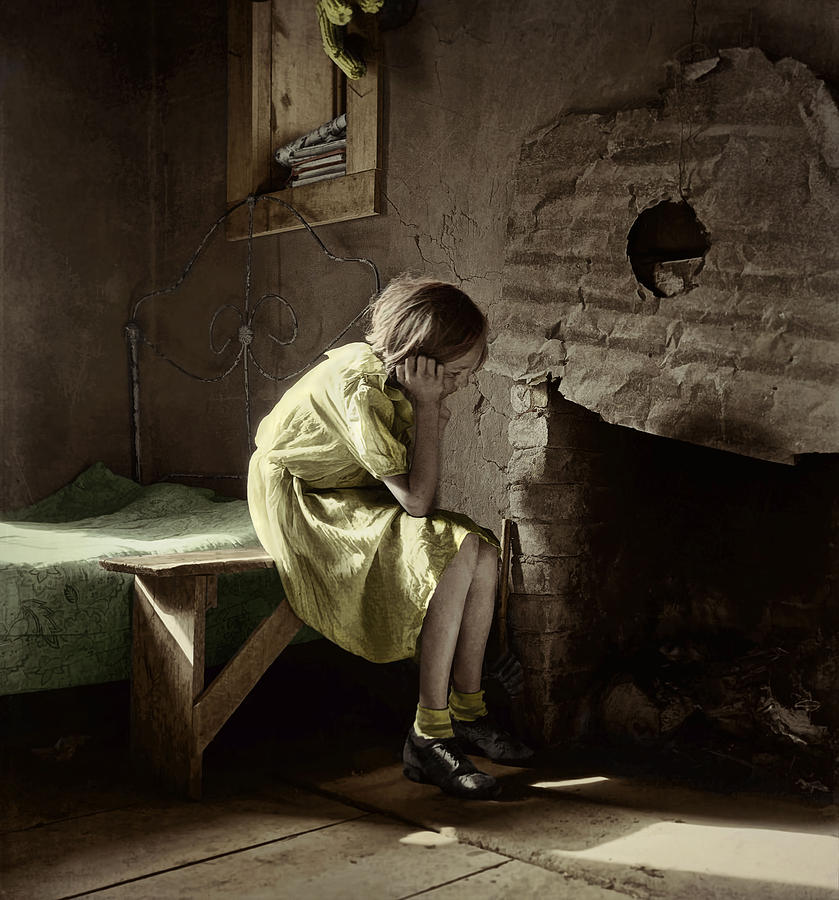 The silence is the perfect medium for the growth of guilt, shame, and issues of trust. One daughter focused on the shame that kept her from talking about it:
The silence is the perfect medium for the growth of guilt, shame, and issues of trust. One daughter focused on the shame that kept her from talking about it:
“You don’t want people to think of you as the poor girl whose mother deserted her because that makes it sound as if you’re asking for a pity party. And by telling the story, I feel you’re pinning the ‘I am so damaged’ label on yourself too. It’s not as though my mother was an addict or a drunk; a stranger might feel compassion for that. No, she was just a suburban housewife who didn’t feel like being a mother anymore. How do you tell that story without making yourself look bad or pitiful? It’s a real bind.”
Anger, rage, and trying to make sense of it all
While some daughters said that the loss and pain they felt at their mothers’ leaving outweighed their anger, others said the opposite. Some of this may have to do with both personality and the age of the child at the time; daughters who were older were, in the main, more volatile.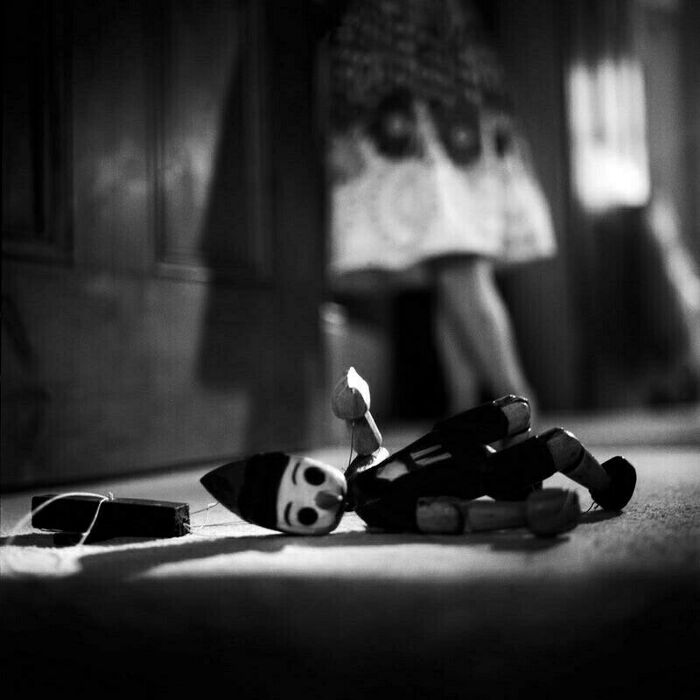 Now 35, Sherry was 10 when her mother left:
Now 35, Sherry was 10 when her mother left:
“When she came back 4 years later—her interim relationship appears not to have panned out—I was consumed with rage. At 14, I was old enough to want some accountability and, instead, my mother and father did a charade of pretending everything was just fine. She wouldn’t talk about it. He wouldn’t talk about it. My two younger brothers who were only 3 and 4 when she left were just happy to have her back. So they made me the problem. The angry girl who disrupted the joyful reunion. It’s been over 20 years and that is still the role assigned to me. I don’t trust either of them and have little contact.”
Melissa Cistaro’s sometimes searing, sometimes troubling memoir, Pieces of My Mother, is one daughter’s effort to make sense of both of her mother’s leaving and the woman she was; the act of writing clearly was a way of coming to terms with the experience.
Cistaro’s mother left when she was 4 and her brothers were 5 and 6.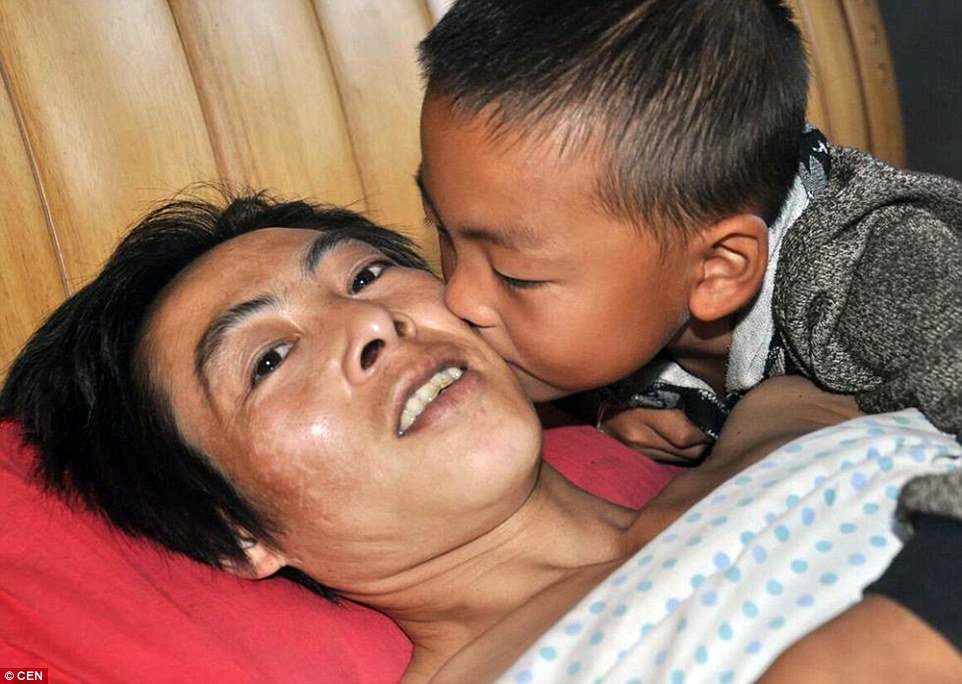 Despite their father’s valiant efforts, the children tumbled into disarray. Cistaro is haunted by the generational cycle of maternal abandonment in her family now that she is a mother herself and frets if there’s some genetic flaw that she too carries that will make her leave her kids. When her 4-year-old asks her how her own mother comforted her when she was scared, Cistaro clutches and doesn’t tell her that her mother wasn’t there when she got scared: “To tell my daughter this truth is to tell myself the darkest truth. That I was leavable. Unkeepable.”
Despite their father’s valiant efforts, the children tumbled into disarray. Cistaro is haunted by the generational cycle of maternal abandonment in her family now that she is a mother herself and frets if there’s some genetic flaw that she too carries that will make her leave her kids. When her 4-year-old asks her how her own mother comforted her when she was scared, Cistaro clutches and doesn’t tell her that her mother wasn’t there when she got scared: “To tell my daughter this truth is to tell myself the darkest truth. That I was leavable. Unkeepable.”
Over the course of the memoir, which recounts both her childhood and the moment at which she goes to what she believes will be her mother’s deathbed, she reads the letters her mother wrote her and others and never sent. Those letters become her way of understanding her mother, despite the fact that her mother never apologized or owned the hurt she rained on her daughter. Cistaro’s effort is to make peace and it’s clearly her journey, not everyone’s. I will admit that the sentence, close to the end of the book, “I wouldn’t trade my mom for any other in the world” left me agape.
I will admit that the sentence, close to the end of the book, “I wouldn’t trade my mom for any other in the world” left me agape.
In contrast, some daughters who answered my questionnaire and who'd become mothers themselves found their mothers' abandonment even more opaque, less understandable, as time went on:
"When my daughter turned 8, which was how old I was when my mother left, I had a new understanding of how incredibly selfish my mother was, walking away from me. Selfish doesn't cover it. Let's call it narcissistic and just plain dreadful. And she wondered why I cut her out of my life at that very moment. She was the same person who walked out except she was uncomfortable with the image it projected. Well, you know that thing about making your bed and lying it? I wasn't being vindictive. I had made peace in the hopes of having a 'family' like normal people but she never explained, never apologized. And when Ella turned 8, I suddenly saw like I never had before.
Yes, aha. And I made the right choice. That was a decade ago, and it was the right move I'd fought for a long time."
But each abandoned daughter has to walk this complicated path and there are costs to both making peace and not making peace. In the main, it is a path that is muddled through in parts, with purpose and best done with the help of a gifted therapist.
Many thanks to my readers on Facebook for sharing their stories.
Copyright © Peg Streep 2021
To find a therapist, please visit the Psychology Today Therapy Directory.
Facebook image: Bricolage/Shutterstock
Can a child abandon his mother on his own
There is no such thing as “renunciation of a parent” in the law. It is impossible to do this legally. The mother is deprived of parental rights only if the court has made such a decision (the procedure for deprivation of rights is possible before the child reaches 18 years of age).
Abandonment of a parent: what does the law say
Not a single legislative act in Russia contains the concept of “abandonment of a mother”. The child does not have such an opportunity as to abandon his parent of his own free will, even if he does not fulfill his duties.
The issue of so-called “parental abandonment” may arise both before adulthood and later. If the mother is dysfunctional (left the child, suffers from alcoholism, causes physical harm, etc.), then it makes sense to deprive her of parental rights. The procedure for depriving a parent of rights is relevant until the child's 18th birthday. However, minors cannot do this on their own.
The legal representative of the child can initiate the process of depriving the mother of parental rights (father, guardian or trustee, prosecutor, representatives of guardianship and guardianship authorities, organizations where the child is deprived of parental care).
Evidence must be presented to the court, according to which the mother can be considered such that she does not properly fulfill parental responsibilities. If the court decides that the mother cannot continue to raise the child, she is deprived of her rights.
If the court decides that the mother cannot continue to raise the child, she is deprived of her rights.
What a mother can claim
Deprivation of parental rights is relevant for the reason that in the future the parent may demand maintenance and care from the child, if he is not deprived of such an opportunity in time. The Family Code spells out the obligations of adult children in relation to their parents (Article 87). When the mother becomes disabled (acquisition of a disability, retirement), the child will be obliged to support, care for and care for her.
Sometimes such situations occur when a mother did not bring up her child at one time, but in her old age she remembered that she had a child. If such a parent claims to receive child support, the court will be forced to satisfy her requirements. To avoid this, it makes sense to deprive a parent of rights, but this must be done before the child reaches the age of majority .
After 18 years of age, this procedure is not carried out. How then to be if the mother demands alimony for her maintenance, care and care, but is not deprived of her rights? In this case, it is possible to prove in court that the parent evaded the performance of duties at one time (clause 5, article 87 of the RF IC).
How then to be if the mother demands alimony for her maintenance, care and care, but is not deprived of her rights? In this case, it is possible to prove in court that the parent evaded the performance of duties at one time (clause 5, article 87 of the RF IC).
Important: A mother who has not been deprived of parental rights can also claim the child's property and inheritance, unless it is proved that she avoided parental duties.
Thus, it is impossible to legally abandon the mother. This is simply not provided for by our legislation. In fact, in some families, relationships still develop in such a way that parents abandon their children, and then the children pay in the same coin. After all, few people want to communicate and support a parent who once abandoned the child, pushed him away with his behavior and attitude.
I want to officially give up my mother
Hello!!!! tell me please I want to officially give up my mother, we have a very bad relationship with her and we haven’t communicated for 15 years, I live with my dad, I was told that she might in the future may file for alimony, I'm not going to pay her anything, and I no longer consider her a mother! Tell me what I need to do for this and what documents are needed!??!!!!! Many thanks in advance !!!!
, Olga, Moscow
abandonment of the child abandonment of the mother
Yanna Galagan
Lawyer, Krasnodar
Good afternoon! If you are an adult, then you can not refuse.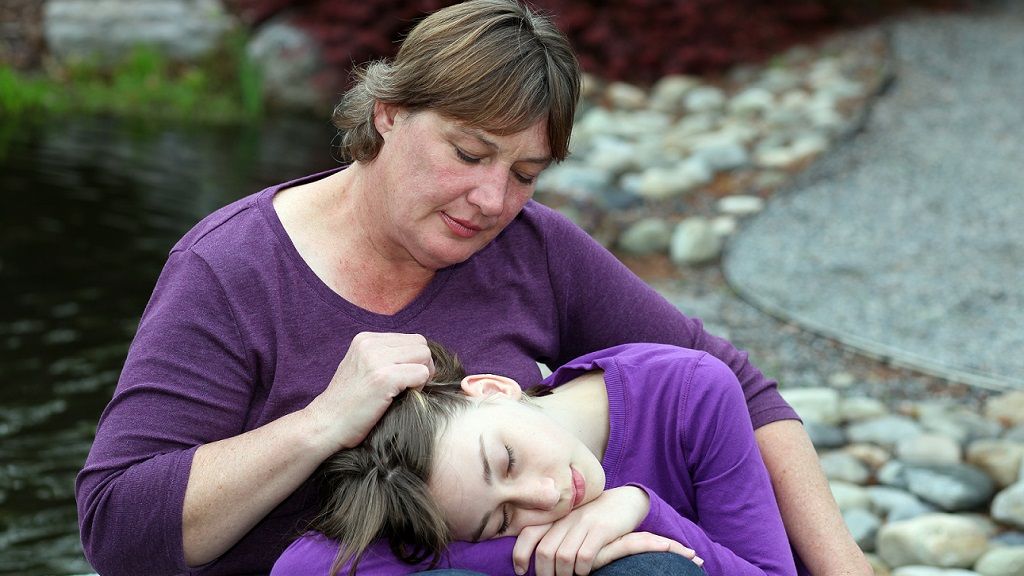 But if in the future the mother applies for alimony for her maintenance, then on the condition that the mother did not fulfill her parental duties, the court will refuse to collect alimony.
But if in the future the mother applies for alimony for her maintenance, then on the condition that the mother did not fulfill her parental duties, the court will refuse to collect alimony.
Similar questions
Criminal law he will be refused
Question about how to deal with a free lawyer and how it all works now. There is a criminal case, the accused is cooperating with the investigation and the court in the coming days. The state provided a free lawyer, but now, as far as I know, if there is a guilty verdict, then the defendant will be billed in the form of a lawyer's services. The lawyer himself confirmed this and said that it was necessary to refuse at the meeting, but did not explain whether in this case the accused would be billed. Now, a week before the trial, we phoned the lawyer and he didn’t really answer what to do and how to refuse (although before that he had promised to explain the whole procedure). Tell me how the accused can refuse a lawyer and will it not be that she will be billed for the services of a lawyer anyway, even if she refuses it. Thanks
Tell me how the accused can refuse a lawyer and will it not be that she will be billed for the services of a lawyer anyway, even if she refuses it. Thanks
, question No. 3453672, Alexey, Moscow
Real estate
Hello, tell me, please, the father wants to give his daughter an apartment, is the notarized consent of the mother (spouse) required or can it be written in the contract her?
Hello, tell me, please, the father wants to give his daughter an apartment, is the notarized consent of the mother (wife) required or can it be written in the contract? If prescribed, then by whom? Ownership in father's name
, question No. 3453350, Anait, Orenburg
1200 ₽
The issue is resolved
Labor law
The employment contract says that I want to give up the position secretary of the head"
Good afternoon. I got a job as an occupational safety specialist in September 2020. Since 2020, at the same time, I have combined the position of secretary of the head. In the pay slip it is written "specialist in labor protection, part-time worker of the 1st category." The employment contract says that there is an additional payment, but I want to give up the position of "secretary to the head", and I don't want to be fired from giving up my job duties, although I only have a job as an OT specialist. The head-director says that there is no one to replace and this is a part-time job. And there is a secretary at this rate, when she goes on vacation or on sick leave, I work instead of her. I want to know the correctness of the drafting of the employment contract. And what should I do in such a situation, do I have the right to refuse to work as a secretary without losing my position as an OT specialist?
I got a job as an occupational safety specialist in September 2020. Since 2020, at the same time, I have combined the position of secretary of the head. In the pay slip it is written "specialist in labor protection, part-time worker of the 1st category." The employment contract says that there is an additional payment, but I want to give up the position of "secretary to the head", and I don't want to be fired from giving up my job duties, although I only have a job as an OT specialist. The head-director says that there is no one to replace and this is a part-time job. And there is a secretary at this rate, when she goes on vacation or on sick leave, I work instead of her. I want to know the correctness of the drafting of the employment contract. And what should I do in such a situation, do I have the right to refuse to work as a secretary without losing my position as an OT specialist?
, question No. 3453435, Anastasia Sitnikova, St. Petersburg
Petersburg
Family law
Hello, I would like to ask a question about children, parents separated in 2019, children before this year
Hello, I would like to ask a question about the children, the parents divorced in 2019, the children lived with their mother until this year, in the summer of this year, the father established the residence of the children with him through the court, while until that time he was not interested in children, but how only his mother issued alimony and child allowances for him, since he himself did not help these years, he began to take an interest in children, the children live with him for the third month, while the children cannot normally communicate with their mother on the phone with him, they have to do this either in his absence, or go somewhere, and now he began to threaten that he would forbid the mother to communicate with the children at all, since she was interested in the children, for example, what they ate, what they were wearing, which is quite normal and says that children under 18 will not be given away and neither the court nor anything will help.
